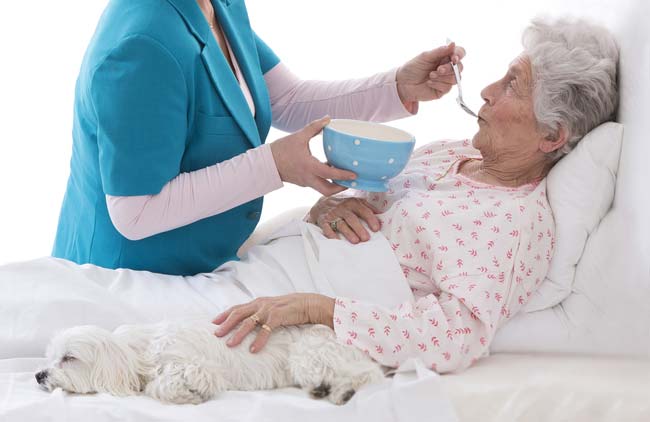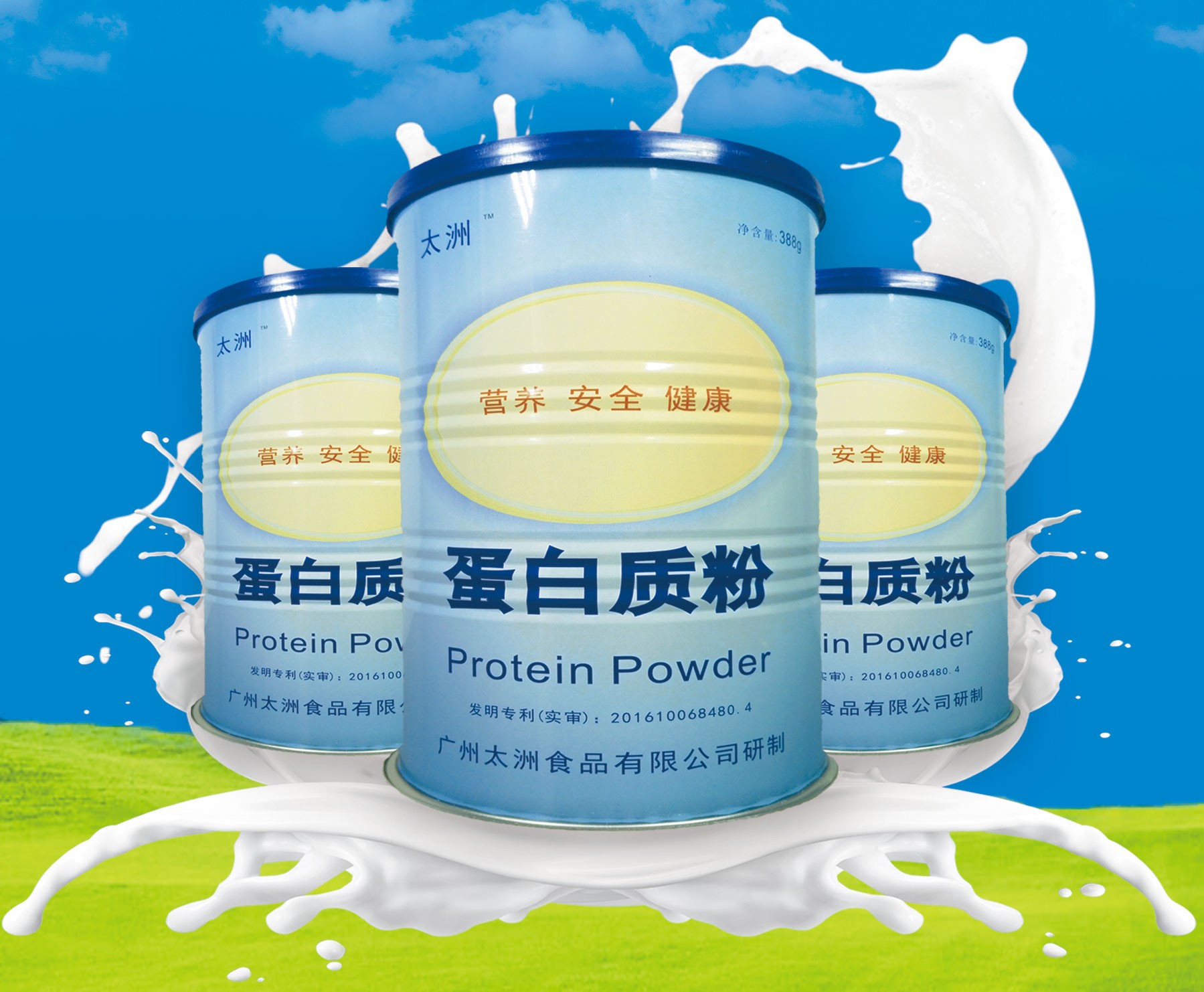Prolonged compression of a tissue by a patient who has been on a bed for a long period of time may result in many complications and further complicating the disease. This article will explain how to take care of the diet related to bedridden patients.

1. Dysphagia affects nutrient intake:
Many families have the experience of caring for bed-ridden patients that the time it takes to eat is a headache when the person being treated has swallowing problems. The general definition of difficulty in swallowing, “food can not smoothly from the mouth into the stomach.” That is, it loses all or part of its ability to control chewing, swallowing and tongue activity, making food unable to move from the front of the mouth to the back and making food delivery to the throat very difficult. Dysphagia often prevents the patient from eating certain important foods and, as a result of lack of consumption of certain types of food for a long time, may lose some of the important nutrients. The most common long-term non-eating fruits and vegetables, resulting in inadequate intake of cellulose cause constipation, or too little meat to eat and lack of protein and other nutritional problems. Only eat porridge with meat sauce pickles every day is unable to meet our daily needs all the nutrients. Therefore, dysphagia not only affects the nutritional status of the patient, but also the party may cause the risk of choking the food to the lungs or even suffocating if the food supplied or the methods of supply are not adequate.
How to solve the problem of swallowing?
- 1 Adjust the supply of food texture:
Fine crunchy foods are good for those who can not chew but need to be stimulated to swallow food. If the supply of fine food, it is best to be able to explain one by one the contents of the food supply, avoid all the food into a ball, resulting in patient rejection of shredded food. The best in the supply should also be as general food, each dish separately dressed to improve food intake of the degree of acceptance.
- 2. Increase the consistency of food:
Appropriate thick food is helpful to stimulate saliva secretion and swallowing reaction, which can promote chewing and tongue movement muscle strength, to avoid too dilute liquid, water liquid food particularly easy to choke to be careful, you can use cornstarch, baby Flour, cooked mashed mashed potatoes Stir in the food to increase the food consistency. Such as pudding, steamed egg, minced meat, puree, etc., the best consistency is similar to the canned baby food in the market. The amount of food per half of the meal is about 1/2 to a teaspoon. Avoid small pieces, small pieces of food, because it is easy to cause the risk of suffocation.
- 3 Small meals:
May wish to change the three meals a day supply of six meals, the use of small calories and high food to increase nutritional intake.
- 4. Bedridden eating considerations:
The best eating posture for bedridden patients is to raise the position of the headboard and bend the waist and hip as much as possible. The tabletop should be placed at the appropriate height of the waist and chest. Food placed in the mouth with a distance of thirty centimeters. Provide the necessary food assistance to enable the patient to have adequate nutrition.
- 5. Gastric tube diet
If long-term problems with dysphagia can not be effectively solved, resulting in malnutrition, weight loss situation, we must consider giving pipe irrigation diet to provide nutrition. Nutrient solution for tube irrigation can be homogenized meal or elemental diet such as vegan.
2. Long-term bed rest or immobility to reduce the cause of constipation, the prevention and treatment as follows:
- 1. Take more fiber-rich foods, such as whole grains, raw beans, vegetables, fruits, seaweeds. If swallowing or chewing problems have to be labeled as juice food, remember to lay a good fruit and vegetables together with the residue to eat, to eat in the fiber.
- 2. Appropriate water intake.
- 3 black jujube juice can have a try. Lactic acid drinks containing lactic acid bacteria can stimulate peristalsis.
- 4. stand up or wheelchair exercise, and abdominal massage.

3. How to deal with the problem of diarrhea?
- 1. Be aware of the problem of cross contamination when preparing food, such as knives and chopping boards for raw and cooked foods.
- 2. Prepared meal food, and finally able to eat, if there is no proper storage equipment, the temperature of food is not eaten meal.
- 3. If you are using tube irrigation, then pay attention to whether the speed of irrigation is too fast, the amount of irrigation is too much, filling formula contains lactose, lactose poor if not, it replaced without milk Sugar formula, the concentration of other formulations will also affect. On the preparation of Guan irrigation diet, the best dietitian under the guidance of deployment.
- 4. When diarrhea has occurred, too-oily foods can aggravate the condition.
- 5. Intestinal stool is too hard, it will infiltrate the symptoms similar to diarrhea, can be used to carry gloves index finger examination.
- 6. Ask the physician if the drug prescription causes diarrhea. Too frequent and large amounts of diarrhea should still be handled by physicians.
4 Pressure ulcers
Good nutritional status helps prevent pressure sores. Malnutrition can cause anemia and edema. All of these conditions destroy the skin tissue and weaken the resistance of the skin and subcutaneous tissues, making it difficult to change body movements and postures. If overweight, increase the pressure on the prominent parts of the bone, and thicker skin creases are more prone to wet and heat, increasing the risk of pressure ulcers, weight loss, the skin is lack of protective fat layer, making the bones closer to the skin Surface, so regular measurement of patient weight, in addition to understanding the nutritional status of patients, but also to prevent the occurrence of pressure ulcers.
Which nutrients help prevent and heal pressure ulcers?
Food can supply We regulate the physiological function, the body metabolism, the energy needed to repair the wound. If insufficient caloric intake, the body will decompose stored fat and protein, converted into heat for the body to use, making the body protective layer of fat decreased, increasing the risk of pressure ulcers occurred. In addition, when pressure ulcers occur, a large amount of protein is lost from the wounds of pressure ulcers, and therefore protein intake should be increased. The main food sources of protein: fish, meat, beans, eggs, milk and their products. Vitamin A, B group and C on the regeneration of skin tissue have a role in promoting, may be increased. Sources of vitamin A are liver, egg yolk, lean meat and so on. Sources of vitamin C are oranges, oranges and other citrus fruits. In addition, zinc is also helpful for the healing of cutaneous wounds. Moisture intake is also important. If the body is dehydrated, the tissue catabolizes and increases the risk of pressure ulcers.
5. Prevention of urinary tract infections take care of:
Adequate water intake: Proper drinking refers to the amount of daily urinary excretion plus an amount of 500 West. In addition acidic beverages such as cranberry juice, cranberry juice, but also help to prevent the occurrence of urinary tract infections.
For bedridden patients, their appetite is impaired because of physical activity. Therefore, patients should be encouraged to maintain a balanced intake of six categories of foods, including staple foods, meats, eggs, milk, vegetables, fruits and fat. Observing the patient’s diet and water, recording them when necessary, and regularly weighing and recording are all easy and effective ways to understand and promote the patient’s nutritional status.
Leave a Reply